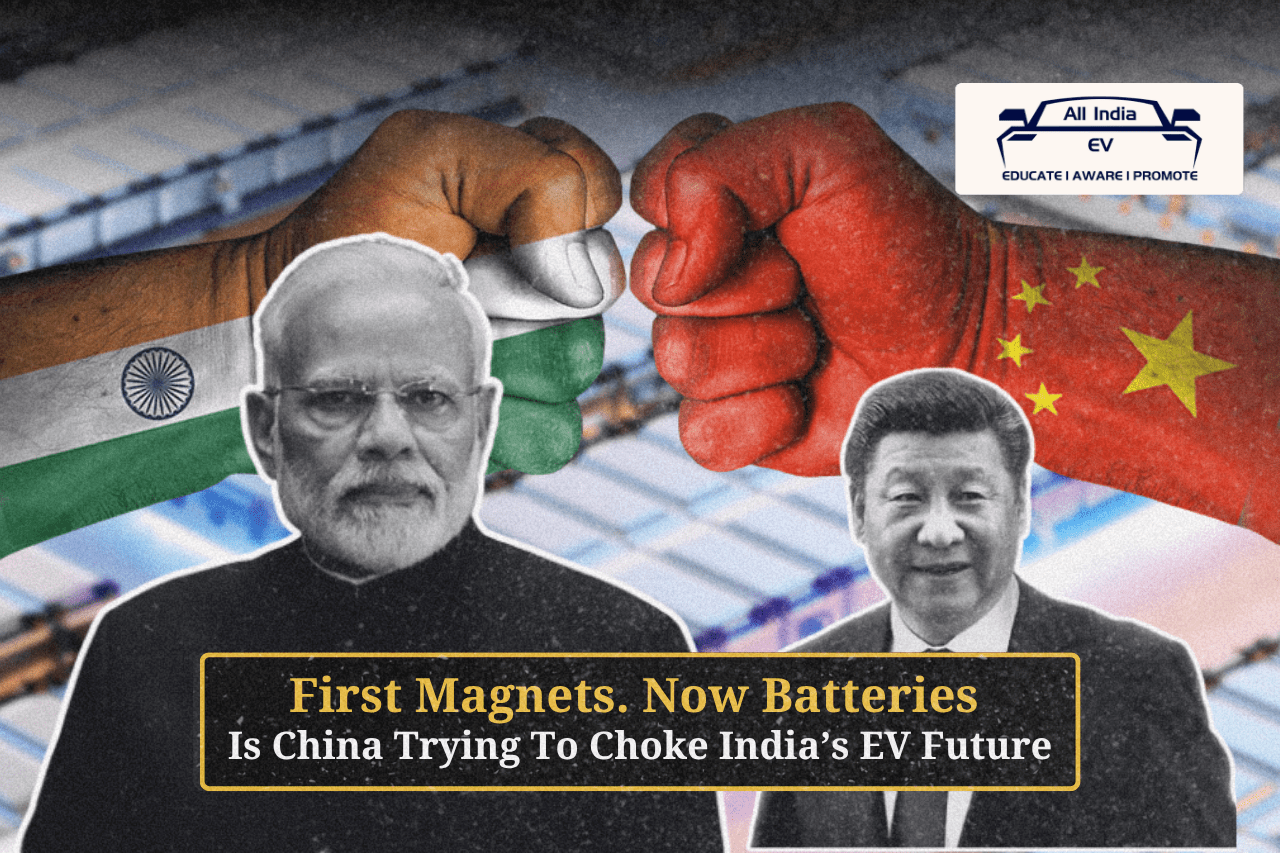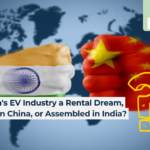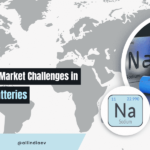
China’s EV Battery Export Curbs: A Jolt India Must Wake Up To
As the world races toward an electric future, China has quietly tightened its grip on the critical technologies that power this transformation. In a bold move with far-reaching global consequences, Beijing has imposed new export controls on key processes used in EV battery production and lithium refining two pillars of the modern EV supply chain.
For India, still in the nascent stages of building a self-reliant EV ecosystem—this development is far more than just another headline. It is a stark and urgent warning about the risks of overdependence on a single global powerhouse that already dominates much of the world’s clean energy technology.
China’s stranglehold over EV battery materials and processes isn’t accidental, it’s strategic. By controlling nearly the entire supply chain, from raw material extraction to advanced battery technologies, Beijing has positioned itself as the gatekeeper of the electric revolution. Now, with these fresh restrictions, the rest of the world, and especially countries like India must confront a hard truth: we are entering a new era where technology access can be weaponized as a geopolitical tool.
Whats cooking in China?
China has just tightened its grip on the electric vehicle (EV) supply chain, and the tremors will be felt across the world including right here in India.
On July 17, Beijing added a range of technologies critical for EV battery production to its export control list. This includes processes for refining lithium and manufacturing lithium iron phosphate (LFP) batteries—the backbone of today’s cost-effective electric mobility. Any transfer of these technologies abroad, whether through trade, investment, or partnerships, will now require a government license.
At first glance, this may seem like yet another chess move in China’s escalating trade tensions with the West. But dig deeper, and it’s clear this is a strategic maneuver to cement its dominance in the global EV race.
Consider the numbers: Chinese companies currently control 94% of the world’s LFP battery production capacity and process 70% of global lithium.
CATL and BYD—China’s battery giants—together supply two-thirds of the global EV battery market. Their technologies have outpaced even Tesla’s Superchargers, delivering 250 miles of range in just five minutes of charging.
First Magnets, Now EV Battery: Is China Planning to Choke India’s EV Growth?
Earlier this year, China imposed export restrictions on certain rare earth magnets—critical components for EV motors. Now, with its latest curbs on battery production technologies and lithium processing, Beijing appears to be tightening the noose on the very heart of electric mobility.
For India, the timing couldn’t be more unsettling. Our EV industry is still heavily dependent on Chinese imports for key components, from permanent magnets for motors to lithium-ion cells for batteries. Despite government efforts to encourage domestic manufacturing under the “Make in India” and PLI schemes, the country lacks the technological depth and raw material processing capabilities to pivot away quickly.
If China continues to weaponize its dominance over the EV supply chain, India risks facing delays, cost escalations, and disruptions in its electrification roadmap. The fact that Chinese players like CATL and BYD control such a large share of global production further limits alternatives for Indian automakers and battery firms.
While there’s no concrete evidence of a deliberate strategy to stifle India’s EV growth, the cumulative impact of these restrictions paints a troubling picture. Unless India accelerates efforts to localize critical technologies and secure diversified supply chains, its EV revolution could remain vulnerable to the shifting sands of geopolitics.
China’s latest controls underscore three hard truths for India’s EV sector:
- We are over-reliant on one nation for critical minerals and battery technologies.
- The global supply chain is fracturing, and access to Chinese intellectual property (IP) can no longer be taken for granted.
- Speed is everything—whoever masters domestic supply chains first will shape the future of mobility.
Western nations have already begun responding. The US and EU are investing heavily in localizing battery supply chains and securing critical mineral partnerships in Africa and Latin America. India must act with the same urgency.
This means accelerating efforts to establish lithium refining and cathode manufacturing in India, investing in R&D for next-generation battery chemistries, and developing strong trade relationships with countries like Australia and Chile for critical raw materials. Equally important is building a robust battery recycling industry to reduce our dependence on fresh imports.
China says its new rules are about “safeguarding national economic security.” For India, this is a wake-up call to do the same. The race for EV dominance is not just about cars—it’s about control over the technologies that will power the 21st century.
The Road Ahead: Can India Shield Its EV Ambitions?
As China tightens its grip on EV battery technologies, India is keeping a close watch on how this plays out globally. But watching alone won’t be enough. Without rapid progress in securing alternative supply chains, investing in domestic R&D, and building processing capabilities at home, India risks being caught on the wrong side of a global technology divide.
The choices made today will determine whether the country can shield its EV ambitions from external shocks or remain dependent on a supply chain increasingly shaped by geopolitical power plays.
Are we moving fast enough to build a truly self-reliant EV ecosystem? Can India diversify its critical mineral sources before it’s too late? Or will our electric dreams remain hostage to global giants?









